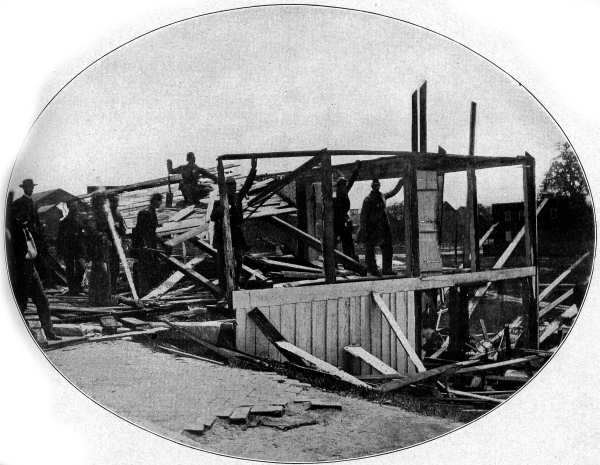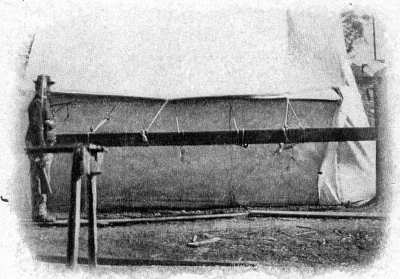|

The Provost—Marshal at Work
Destroying Houses from Which Liquor had Been Sold to Soldiers -
Alexandria, 1863
During the year 1863,
while troops of the Union army were located in and around Alexandria, it was
frequently the case that both officers and soldiers who visited the city
would enter huts and houses in which liquor of the worst quality was sold to
them. It was discovered in the course of an examination made by chemists
that much of this liquor was made from pure spirits and was inflammable to
the highest degree. The soldier, upon entering one of these shops, would
have offered to him a large drink at a cheap price, and before many minutes
he would become stupefied. In several cases deaths from alcoholism and
delirium tremens ensued. After becoming very drunk, the officer or soldier
would be robbed by the men and women associated with these groggeries, and
thrown unconscious into the street at some distance from the scene of the
crime. These places became so obnoxious and created so much trouble that it
was finally determined by General Slough to destroy them absolutely as the
only hope of abatement. The scene of the photograph shows how thoroughly his
men performed this task.

On
Guard at the Provost—Marshal's Tent |
